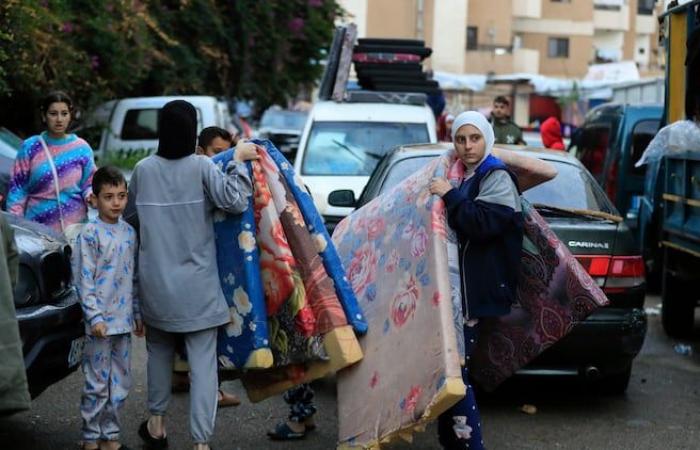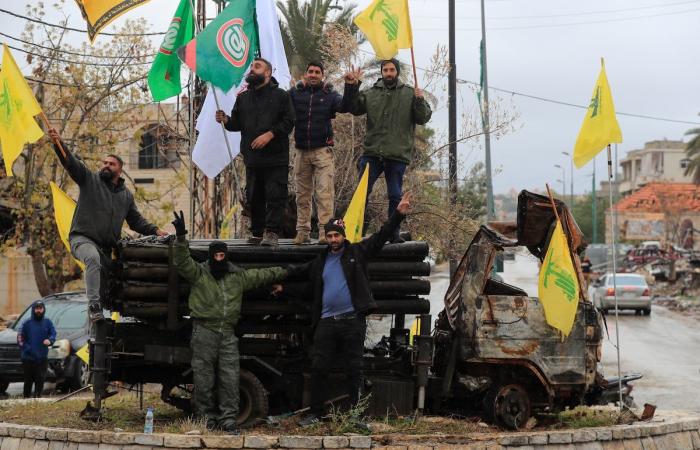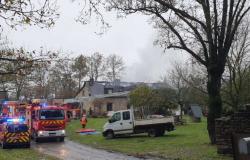If it holds, the ceasefire would end nearly 14 months of fighting between Israel and Hezbollah, which degenerated in mid-September into all-out war and threatened to draw in Iran, Hezbollah’s patron. , and Israel in a wider conflagration.
It could provide some respite for the 1.2 million Lebanese displaced by the fighting and the tens of thousands of Israelis who have fled their homes along the border with Lebanon.
The U.S.-French-brokered deal, approved by Israel late Tuesday, provides for an initial two-month cessation of fighting and requires Hezbollah to end its armed presence in southern Lebanon, while Israeli troops must return to their side of the border.
Thousands of additional Lebanese troops and U.N. peacekeepers will be deployed to the south, and a U.S.-led international committee will monitor compliance with the deal.
Israel says it reserves the right to attack Hezbollah if it violates the terms of the agreement.
The deal, however, does not resolve the ongoing war in the Gaza Strip, where Israel is still fighting Hamas militants in response to the group’s cross-border raid in southern Israel in October 2023. But President Joe Biden has said Tuesday that his administration would make a new effort in the coming days to try to reach an agreement.
Lebanese flock to the south
Hours before the ceasefire took effect, Israel launched widespread strikes that shook the Lebanese capital Beirut and a volley of Hezbollah rockets set off air-warning sirens across much of northern Lebanon. ‘Israel.
But after the ceasefire began early Wednesday, calm seemed to settle in, prompting waves of Lebanese to return home.
Hezbollah supporters cheer as they return to Dahiyeh, Beirut, Lebanon, after a ceasefire between Israel and Hezbollah came into effect on Wednesday, November 27, 2024. (Bilal Hussein/Associated Press)
Israeli Arabic-language military spokesman Avichay Adraee warned displaced Lebanese not to return to their villages in southern Lebanon. The Israeli military said forces opened fire to repel vehicles entering a prohibited area.
The Lebanese army has asked the displaced to avoid villages and towns near the border until Israeli troops withdraw.
Videos circulating on social media show displaced Lebanese defying these calls and returning to southern villages near the coastal city of Tyre. Israeli troops were still present in parts of southern Lebanon after Israel launched a ground invasion in October.
On the highway linking Beirut to southern Lebanon, thousands of people drove south with their belongings and mattresses strapped to the top of their cars. Traffic was blocked at the northern entrance to the port city of Sidon.
Residents will recall the vast destruction caused by the Israeli army during its campaign, which razed villages where the army said it found large caches of weapons and infrastructure it said was intended to launch an attack on type of that of October 7 on northern Israel.
Hezbollah supporters pose near a destroyed rocket launcher following a ceasefire between Israel and Hezbollah that took effect Wednesday, Nov. 27, 2024, in Kfar Tebnit, Lebanon. (Mohammed Zaatari/Associated Press)
More than 3,760 people have been killed by Israeli fire in Lebanon over the past 13 months, including many civilians, according to Lebanese health authorities.
More moderate atmosphere in Israel
“This is a moment of victory, pride and honor for all of Lebanon,” said Hussein Sweidan, a returning resident of Tire in southern Lebanon who considers the ceasefire a victory. of Hezbollah.
Celebratory gunfire was heard at a main traffic circle in the city, as people returning honked their horns and residents cheered.
In Israel, the mood was much more subdued, with displaced Israelis fearing that the deal was not ambitious enough to rein in Hezbollah and that it did not take into account the situation in the Gaza Strip and the hostages there. still detained.
“I think it is not safe to return home because Hezbollah is still close to us,” said Eliyahu Maman, a displaced Israeli from the northern Israeli town of Kiryat Shmona, who is not far from the border with Lebanon and which has been hit hard by months of fighting.
On Wednesday morning, a handful of people were walking around, inspecting the damage caused by previous rocket attacks. The city’s shopping center, which had already been hit, appeared to have suffered further damage, and a rocket was seen planted in the ground next to an apartment building.
The fighting has killed more than 70 people in Israel, more than half of them civilians, as well as dozens of Israeli soldiers fighting in southern Lebanon.
It could take months for the displaced to return to their communities, many of which have suffered considerable damage from rocket fire.
But Israel can claim major victories, including the assassination of Hezbollah leader Hassan Nasrallah and most of his senior commanders, as well as the destruction of important military infrastructure.
The massive, long-range rocket attacks that many Israelis feared before the war never fully materialized.
Hezbollah also did not launch ground attacks across the border, despite evidence presented by the Israeli military that it had invested heavily in preparing for such operations.







